Being a morning-person or a night-owl may depend on your genes according to a study of nearly 90, 000 individuals. Participants were asked whether they preferred waking-up and going to bed early, or whether they preferred staying-up late and sleeping in. Their DNA was then analyzed. Researchers found specific genetic variations they think could be […]
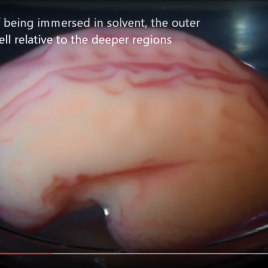
Why the brain has its folds
The folds on the surface of the human brain exist because of physics, not biology, according to a new study using 3D printing. The researchers believe their results suggest that physical forces play a crucial role in neurodevelopment, and may provide insights into diagnosing and treating some neurological disorders. The study proves a model from […]
T.V.’s newest hit drama – The Secret Lives of Octopuses
Contrary to their reputation, octopuses are indeed a social bunch. That’s what researchers realized after watching over 52 hours of film of the shallow-water Octopus tetricus in Jervis Bay, Australia. They saw footage of octopuses communicating with each other using body postures and by changing colours. For example when an octopus with a dark body […]

Monitoring biomarkers in real-time
Wearable sensors which measure levels of molecules in a patient’s sweat are now able to provide real-time information on an individual’s physiology and health. Sweat contains much information in the form of metabolites such as glucose, and electrolytes such as sodium, which could be used to help diagnose diseases or identify drug use. The developers […]
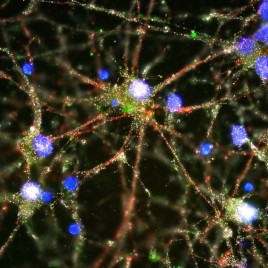
Genetically mapping the cause for schizophrenia’s synaptic loss
Mapping genetic variations has allowed researchers to identify a potential mechanism to explain the onset of schizophrenia. The authors hope this will provide insights into the risk of developing schizophrenia as well as the neurobiology of the disease. Variations in the genetic code controlling the production of C4, a protein known for the role it […]
Some antibiotics are increasing children’s’ health risks
Using a specific group of antibiotics changes the gut microbiota in children, leading to an increased risk of developing asthma and becoming overweight, according to a new study. This group of antibiotics, macrolides, are used as an alternative for individuals who are allergic to penicillin. Researchers analysed the fecal microbiota of 142 children (aged two […]
Overlapping fishing zones could be placing strain on oceanic sharks
Overlap in the ranges of sharks and fishing vessels is placing oceanic shark species at risk from overfishing say researchers. By monitoring the ranges of eight species of oceanic sharks by satellite, and tracking two fleets of longline fishing vessels over several years, researchers found about 80 per cent of the range of oceanic sharks […]
Studying autism with genetically modified monkeys
Genetically modified monkeys showing autism-like behaviours could help the development of strategies to treat the symptoms of autism disorders, according to researchers. Currently one of the major challenges for researchers studying autism spectrum disorders is the lack of animals models that reproduce symptoms typically found in human patients. These monkeys, and their offspring, show behavioural […]
Will biometric authentication be creepy or cool?
From fingerprints to iris scans, biometric identification is becoming part of everyday life. As we move to even more complex behavioural and biological biometrics (a password pill or brain wave and gait analysis for example) there are potential benefits and risks which need to be considered and discussed, says Tom Keenan, author of a new […]
What we’ve learned from Ontario’s wind energy woes
Using the lessons learned from Ontario’s wind-energy disputes, a group has identified factors that cause those disputes, and put forward recommendations for avoiding them. The group includes social scientists, community representatives, and wind-energy advocates. Concerns arise over such things as the distribution of financial benefits and compensation, and effects on the environment and the health […]
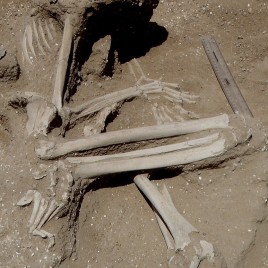
The first massacre in recorded history
Human remains reveal a rare instance of intergroup violence among prehistoric hunter-gatherers. Researchers found the remains of at least 27 people at a site in Kenya, including ten skeletons showing signs of blunt-force or sharp-force trauma to the head and/or neck. The remains, dating to 9,500 – 10,500 years ago were found with no signs […]
Preparing stem cells with electricity is good for the heart
For the first time researchers have shown that stimulating cardiac muscle cells, derived from stem cells, with electrical impulses improves their development and function. Providing these cells with the improved function could potentially help treat cardiovascular disease, one of the world’s major illnesses, as it may provide a way to regenerate heart muscle. When stimulated […]
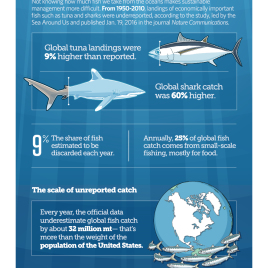
Underestimating global fisheries catches
Researchers have been substantially underestimating the total global fisheries’ catches by as much as 50 per cent, according to a new study. The results are based on “catch-reconstruction”, using scientific literature and asking local experts to help provide missing data. The researchers found increases in catches every year from 1950 to 1996, at which […]
High-rise equals high-risk for cardiac arrest patients
Living on a higher floor means a person has a smaller chance of surviving cardiac arrest, according to the authors of a new study. Researchers believe this effect is caused by the extra time it takes emergency personnel to reach the patient. The study examined data from over 8,000 adults who suffered out-of-hospital cardiac arrest […]
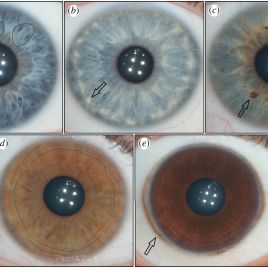
Identifying features of the eye vary by population
Features on the surface of the iris vary widely between individuals of different ancestral groups, according to a new study. Researchers developed a computer program to help identify a variety of features on the iris of subjects with either East Asian, South Asian, or European ancestry. This program allows for a more qualitative assessment than […]
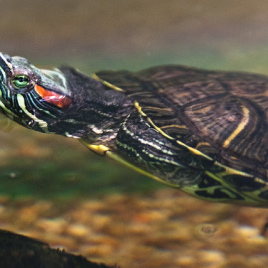
The secret to surviving without oxygen
The Red-eared slider, a species of turtle, is able to survive months of low oxygen, without apparent damage to the brain tissue. Researchers believe they have now found the secret to this ability in the mitochondria of the brain cells. The mitochondria, where the respiration and energy processes of the brain take place, of Red-eared […]